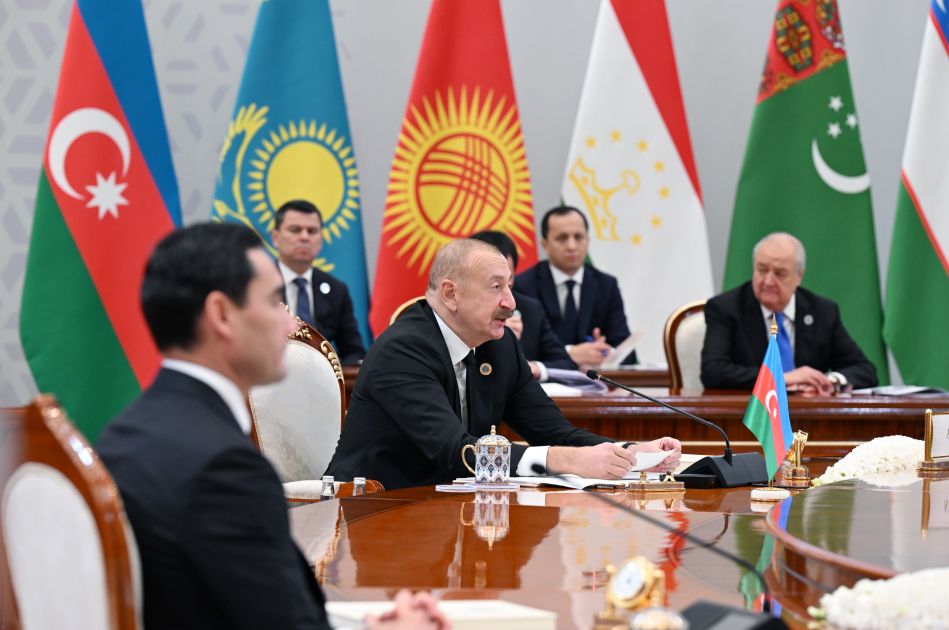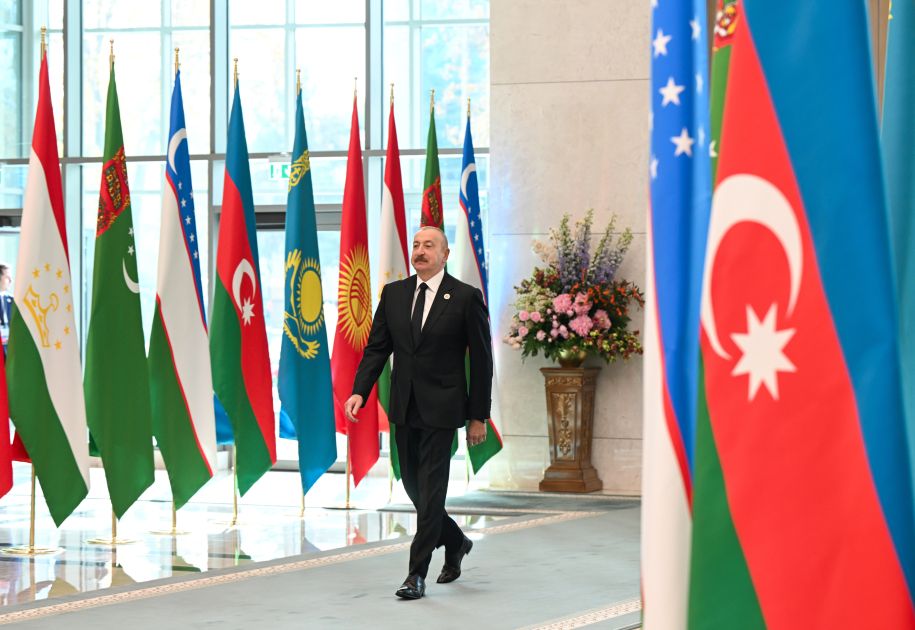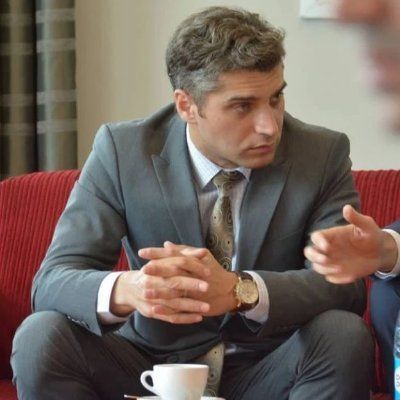New centre of gravity in Eurasia: Why 7th Central Asia Summit matters for Azerbaijan [ANALYSIS]
![New centre of gravity in Eurasia: Why 7th Central Asia Summit matters for Azerbaijan [ANALYSIS]](https://www.azernews.az/media/2025/11/16/a1-17.jpg)
The 7th Consultative Meeting of the Heads of State of Central Asia, held yesterday in Uzbekistan, marked another decisive milestone in the political evolution of a region that is rapidly redefining its role on the Eurasian map. What was once a set of isolated, post-Soviet republics, lacking a shared political voice, geopolitical agency, and the ability to act as a collective actor, is now emerging as a coherent and increasingly influential regional bloc. The significance of the meeting goes far beyond declarations and photo opportunities. It represents a deepening of Central Asia’s new regionalism, one that creates genuine synergy and positions the region as a strategic player rather than a passive geopolitical space.

This shift also opens a timely debate: what would Azerbaijan gain from joining or formally engaging with this format? The answer is clear: Azerbaijan stands to benefit significantly, both in terms of regional influence and strategic connectivity.
To understand why yesterday’s meeting matters, it is essential
to consider the historical context. During the Soviet era, the
Central Asian republics lacked the opportunity to demonstrate unity
and possess meaningful geopolitical weight. Moscow’s administrative
design ensured that the republics remained economically dependent,
politically marginalised, and strategically fragmented. Borders
were drawn to limit cohesion, resources were tightly controlled,
and independent regional initiatives were essentially
impossible.
There was no platform for Kazakhstan to coordinate with Uzbekistan,
nor for Kyrgyzstan to align its policies with Tajikistan or
Turkmenistan. Central Asia existed merely as an administrative
periphery of a superpower.
Fast forward to the present day, and the contrast is striking. The Consultative Meeting format, launched in 2018, has grown into the region’s most effective political mechanism. It allows leaders to articulate common interests, coordinate on strategic issues, and shape a shared vision for their future. The unity that was once denied has now transformed into synergy, a collective strength far greater than the sum of its parts.
The meeting held yesterday in Uzbekistan reflected the maturity
of this regional project. Central Asia is no longer experimenting
with cooperation; it is institutionalising it.
It can now be proudly stated that several important outcomes have
been reinforced, including strengthened regional autonomy,
accelerated economic integration, and most importantly, collective
security and climate resilience. A unified Central Asia is better
equipped to navigate the geopolitical pressures exerted by Russia,
China, the EU, the USA, and the Gulf states. By coordinating their
positions, the five republics, along with Azerbaijan, increase
their bargaining power while reducing vulnerability to external
shocks.
Besides, the region’s potential as a major transport and logistics hub is now becoming a reality. The discussion on harmonised transit policies, coordinated customs regimes, and joint infrastructure planning directly supports the long-term competitiveness of the Middle Corridor, the route that runs from China through Central Asia and the Caspian Sea to the South Caucasus and Europe.
Moreover, Central Asia faces shared threats: border tensions, water scarcity, Afghanistan-related instability, and climate-driven ecological risks. The meeting emphasised joint responses rather than isolated national strategies, demonstrating a recognition that regional security is inseparable from regional cooperation.

Why Azerbaijan’s engagement matters
Azerbaijan is not a Central Asian republic geographically, but politically, culturally, and economically, it is an organic part of the region’s strategic landscape. The meeting in Uzbekistan underscores why Baku should deepen its engagement with this platform. When examining the situation from a broader perspective, it can be said that Azerbaijan is the western anchor of the Middle East. Because the Middle Corridor cannot function effectively without Azerbaijan. It is the key link connecting Central Asia to Türkiye, the South Caucasus, and Europe. Deeper political coordination with Central Asian leaders would improve transit harmonisation, accelerate infrastructure development, and strengthen the Caspian logistics ecosystem.
For Azerbaijan, engagement in this format would reinforce its status as a pivotal transit state and boost its geopolitical importance across Eurasia. So, it also provides reason to say that joining this platform aligns with Azerbaijan’s leadership in the Turkic world.
Most Central Asian states are members of the Organization of Turkic States, where Azerbaijan plays a leading role. Participation in the consultative format would deepen political alignment within the broader Turkic geopolitical space, allowing Azerbaijan to co-shape regional decisions more effectively alongside Kazakhstan, Uzbekistan, and Kyrgyzstan. In addition, it strengthens cooperation on energy, climate, and green transition, which is vital for boosting connections between the East and the West.
Central Asia is emerging as a hub for renewable energy and green hydrogen. With Azerbaijan hosting COP29 and investing heavily in green transformation, there is an unparalleled opportunity for collaborative projects, including cross-border electricity markets, green corridors, and joint investments in solar and wind energy.
These initiatives cannot reach their full potential without political synchronisation at the highest level, a role the consultative format provides. And finally, Azerbaijan's inclusion in this unity enhances the country’s strategic balance, providing it with another multilateral platform independent of Russian-led institutions and EU-centric structures. This strengthens Baku’s multi-vector foreign policy and enhances its influence in Eurasian politics.
The meeting held yesterday in Uzbekistan confirmed that Central Asia was no longer a passive geopolitical space, but it is becoming a self-confident regional centre of gravity. The five republics, along with Azerbaijan, are building a political identity that reflects their sovereignty, their shared interests, and their rising geopolitical relevance.
A united Central Asia is not just stronger; it is transformative. And Azerbaijan, geographically at the crossroads of the region’s most important routes, has every reason to be part of this transformation.
By engaging with the Consultative Meeting format, Azerbaijan can help shape a more interconnected, resilient, and strategically autonomous Eurasia.
Here we are to serve you with news right now. It does not cost much, but worth your attention.
Choose to support open, independent, quality journalism and subscribe on a monthly basis.
By subscribing to our online newspaper, you can have full digital access to all news, analysis, and much more.
You can also follow AzerNEWS on Twitter @AzerNewsAz or Facebook @AzerNewsNewspaper
Thank you!

